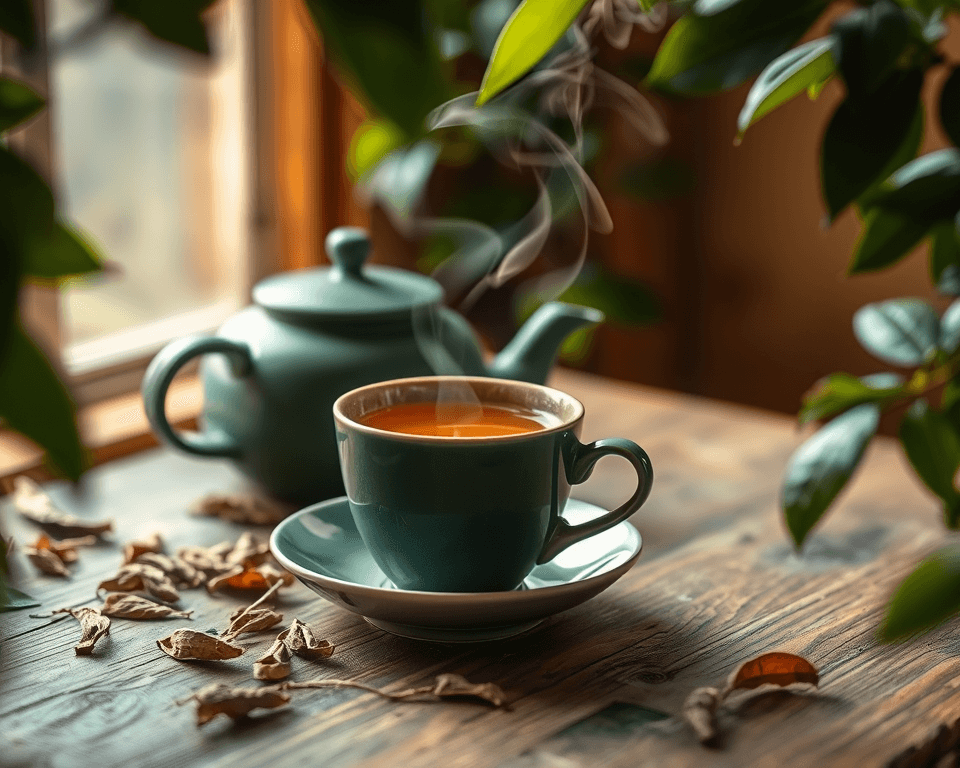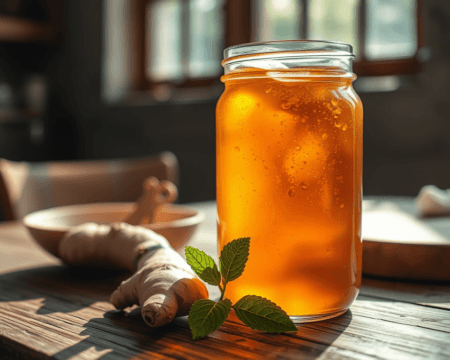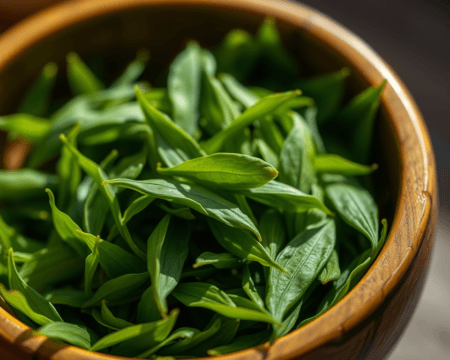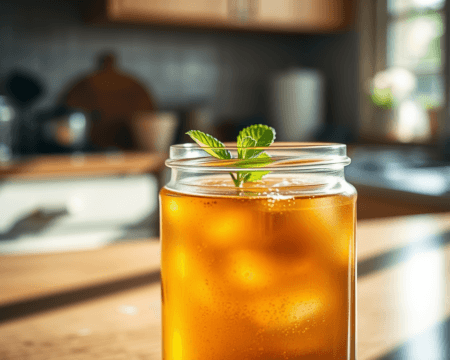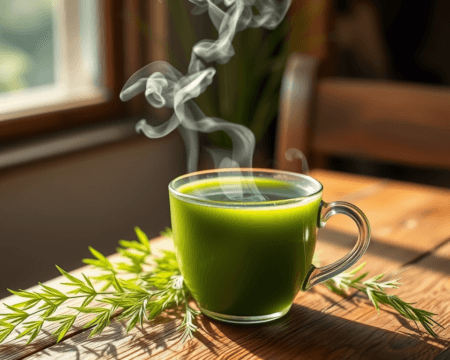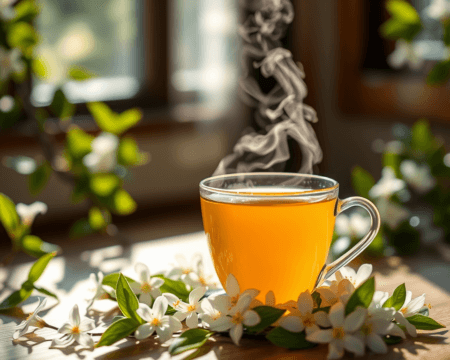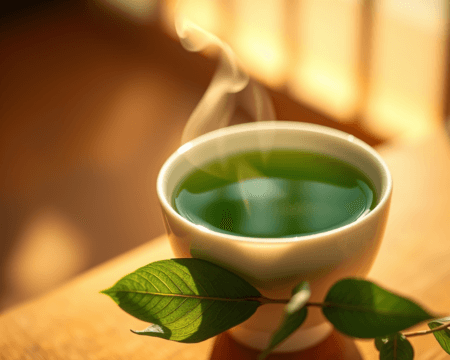Oolong tea is a word that rolls off the tongue and packs a punch with its unique flavors. But for those of us who love a good cup of tea without the jitters, there’s always the looming question: Is oolong tea decaffeinated, or does it pack a punch of caffeine? Well, let’s break it all down! Grab your favorite mug, and let’s get into the nitty-gritty of oolong tea and its caffeine content.
Key Takeaways
- Oolong tea contains caffeine but in moderate amounts.
- It’s a semi-oxidized tea, giving it a distinctive flavor profile.
- Exploring decaffeination methods reveals different impacts on flavor.
- Oolong offers a range of health benefits that can compete with decaf options.
- User testimonials highlight real-life experiences that may surprise you.
The Caffeine Content of Oolong Tea
What is Oolong Tea?
Oolong tea is fascinating—it’s like the middle child of the tea world. Not quite green and not quite black, it’s semi-oxidized, which gives it a complex and rich flavor profile. This means that when you sip on oolong, you’re juggling nuances of floral, fruity, and sometimes nutty tastes. Isn’t that amazing?
Historically, oolong tea hails from China and Taiwan. It’s been around for centuries, and yeah, it has its roots deeply embedded in traditional tea culture. Many varieties exist, each with unique characteristics. One of the most renowned is Tie Guan Yin (Iron Goddess of Mercy), which boasts a sweet and floral aroma that’s hard to resist.
Does Oolong Tea Contain Caffeine?
Now, let’s talk caffeine. Does oolong tea have caffeine? Yes, it does! But here’s the kicker: it’s in moderation. Generally, a cup of oolong tea will have about 30-50 mg of caffeine, depending on how it’s brewed. That’s way less than black tea, which can clock in at 40-70 mg, and often much less than that cup of coffee hitting around 95 mg or more.
Caffeine affects everyone differently, and you might find yourself wondering if you’re sensitive to it. Some folks get jittery with just a little caffeine, while others can guzzle multiple cups without feeling a thing. If you’re the former, understanding how much caffeine you consume from oolong is crucial.
When comparing oolong tea caffeine content with other teas, it lands somewhere between green and black tea. So if you’re looking for a moderate caffeine boost while still sipping on something delightful, oolong might just be your ticket.
Comparison of Caffeine Levels in Different Teas
If you’re a tea lover, I know the comparison game comes into play. Here’s how oolong stacks against other popular types of tea:
| Type of Tea | Average Caffeine Content (per 8 oz) |
|---|---|
| Oolong Tea | 30-50 mg |
| Green Tea | 20-45 mg |
| Black Tea | 40-70 mg |
| Herbal Tea | 0-10 mg (generally caffeine-free) |
| Matcha Tea | 70 mg or more |
So if your caffeine tolerance is moderate, you might not want to switch to a decaf option just yet! Oolong can be a delightful choice that offers the perks of caffeine without overdoing it.
Understanding Decaffeination Processes
How is Oolong Tea Decaffeinated?
So, you’re curious about decaffeination—what’s the deal with that? First off, there are a couple of main methods to remove caffeine from tea, namely the chemical and natural processes. Here’s a rundown:
- Chemical Method: This one uses solvents like ethyl acetate to extract caffeine. Unfortunately, it can sometimes strip away part of the tea’s rich flavor profile in the process.
- CO2 Method: A more modern technique, this uses carbon dioxide under pressure to extract caffeine while keeping the essence of the tea intact. This method usually preserves more of the flavor, resulting in a higher-quality cup.
Generally, decaf oolong won’t be as bold in flavor as its caffeinated counterpart. However, natural decaffeination processes can help retain some of that delightful taste we crave.
Myths and Misconceptions about Oolong Tea and Caffeine
Let’s tackle some common misunderstandings floating around regarding oolong tea and its caffeine content. One biggie is the belief that all tea has minimal caffeine. While herbal teas often are caffeine-free, oolong isn’t one of those.
Another popular myth? That decaffeinated means no caffeine whatsoever. The reality is that decaf options can still contain trace amounts, although it’s significantly less than regular versions. So if you’re looking to completely dodge caffeine, reading labels is a must!
Benefits of Oolong Tea as an Alternative
Health Benefits of Oolong Tea
You’d be surprised at the array of health boons coming from that cup of oolong! It’s loaded with antioxidants—you know, those little fighters that help combat free radicals in your body. Research suggests that oolong tea can boost metabolism, which means it could help in weight management.
Then there’s cardiovascular health. Regular consumption has been linked to lowering cholesterol levels. If that’s not enough, some studies hint that oolong can also benefit your skin—who doesn’t want that glow without the high price tag of skincare products?
Why Choose Oolong over Decaffeinated Teas?
So, what’s the game-changer when it comes to choosing oolong over decaf? It’s all about flavor and benefits. While decaffeinated teas serve their purpose, they often compromise on taste and richness. Oolong gives you the best of both worlds: a delightful sipping experience with the bonus of health perks and a moderate caffeine lift.
For those who can handle a little caffeine, oolong tea is a fantastic way to enjoy your tea ritual while still keeping health in the mix. We’re talking about character, depth, and a whole lot of flavorful goodness—all without the need for a caffeine-free designation!
User Experiences with Oolong Tea
Testimonials and Anecdotes
In a sea of teas, oolong has genuine fans who’ve shared various personal experiences. Many users rave about how transitioning to oolong helped them balance their caffeine intake while enjoying rich flavors. One user shared over a cup with friends, “I love the floral notes of oolong! It adds a touch of elegance to my daily tea routine without making me anxious.”
Others have found it became their go-to in the afternoon slump—enough body to keep them moving without getting jittery. If you’re looking for a tea that fuels your day without turning your heart into a racing engine, oolong may just be what you’re searching for.
Tips for Brewing Oolong Tea
Let’s not skimp on taste; the brewing process is crucial. Grab your loose leaf oolong and prep for a flavorful adventure. Here’s the low-down on how to best brew oolong:
- Temperature: Aim for 190°F to 200°F (or about 90°C to 95°C). Too hot, and you risk bitterness; too cool, and you’ll miss out on those robust flavors.
- Infusion Time: Start with 3-5 minutes and adjust for taste. Each infusion can change the flavor—many oolongs can be steeped multiple times, revealing different layers.
Using quality water is also essential; filtered water goes a long way in ensuring you taste all that oolong goodness without unwanted flavors interfering.
So there you have it. Oolong tea: a deliciously complex marvel of the tea world, packing a moderate caffeine punch, health benefits galore, and a unique flavor profile. Whether you’re sipping it for pleasure or health, oolong deserves a spot in your tea collection!
Frequently Asked Questions
What is oolong tea and how does it differ from other types of tea?
Oolong tea is a semi-oxidized tea that falls between green and black tea in terms of oxidation and flavor. Its unique processing gives it a distinctive taste and aroma, allowing for a wide range of flavors not found in fully oxidized or unoxidized teas.
Is the caffeine in oolong tea harmful?
The caffeine content in oolong tea is moderate, typically ranging from 30 to 50 mg per cup. This amount is lower than that found in coffee but can still offer an energy boost. For most people, moderate caffeine consumption is safe and may even provide health benefits.
What are the health benefits of oolong tea?
Oolong tea is rich in antioxidants and has been linked to several health benefits, including improved metabolism, better heart health, and enhanced mental alertness. It may also aid in weight management and contribute to overall well-being.
Can oolong tea be decaffeinated?
Yes, oolong tea can be decaffeinated through various methods, such as CO2 or ethyl acetate processes. However, these methods can alter the tea’s flavor profile. For the best taste, consider high-quality brands that use gentle decaffeination techniques.
How does the flavor of oolong tea differ from other teas?
Oolong tea presents a unique flavor profile that varies based on its oxidation level. It can range from floral and fruity to rich and toasty, making it versatile and appealing for many tea lovers seeking different tastes.
How should I brew oolong tea for the best flavor?
For optimal flavor, brew oolong tea at a temperature between 185°F to 205°F (85°C to 96°C) for 3 to 5 minutes. Experiment with steeping times and water temperature to find the profile you love best, as oolong can be steeped multiple times.
Are there any side effects associated with drinking oolong tea?
While oolong tea is generally safe for most people, excessive consumption can lead to side effects such as headaches, insomnia, or digestive issues due to its caffeine content. Moderation is key to enjoying its benefits without adverse effects.
Can I drink oolong tea if I’m sensitive to caffeine?
Yes, you can still enjoy oolong tea even if you are sensitive to caffeine. Consider opting for decaffeinated varieties or limit your intake to smaller amounts to minimize any potential side effects while still enjoying the flavor.
What makes oolong tea a good choice for a tea drinker?
Oolong tea is a great choice for tea drinkers because of its diverse flavor range, moderate caffeine content, and various health benefits. Its unique processing techniques allow it to bridge the qualities of green and black teas, making it versatile for different palates.




